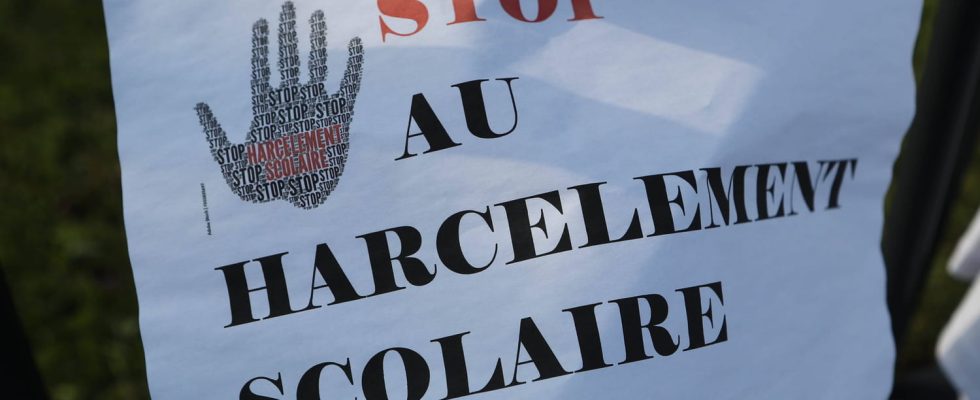Have the high school and the rectorate taken all the necessary measures to avoid the school harassment which led to Nicolas’ suicide in Poissy? Do they risk being considered partly responsible for the tragedy? And what would they risk?
Bereaved parents “outraged and frightened” by letters signed by the rectorate. The said letters deemed “shameful” by the Minister of National Education question the responsibility of the educational establishment in the suicide of Nicolas, the high school student who killed himself in Poissy, on September 5, 2023. It is also and above all the response provided by the management of the Adrienne-Bolland high school, where the teenager was educated, and the rectorate to the harassment suffered by Nicolas, which raises questions. Was it sufficient?
Nicolas’ parents assure us that no. “It is incomprehensible that you can let a teenager suffer such verbal and psychological violence in your establishment without reacting in some way,” they denounced in a letter addressed to the management of the Poissy vocational high school and made public by BFMTV. They further warned that they would consider the high school “as responsible if a disaster were to happen to [leur] son”.
The high school management and the rectorate defended themselves against the accusations made by the parents, but this defense was accompanied by an offensive, the rectorate having threatened Nicolas’s parents with making slanderous accusations. Gabriel Attal promised to shed light on the situation and take the necessary administrative measures. On the criminal front, the teenager’s parents have not yet made a decision, but have not ruled out filing a complaint. “Before making this decision, we are awaiting the results of the investigations and the actions that will be taken by the government.” In the event of a complaint, what would the rectorate risk?
A “resolution phase” and “alleged harassment”
Accused of not responding to the school harassment which targeted Nicolas, the school responded to the parents of the high school student in a letter sent at the end of April indicating that “no significant class fact linked to Nicolas has been reported by the teaching team since March 10” and that the teaching staff could in fact “consider that the situation was in the resolution phase”. This situation explained, according to management, the non-implementation of the measures announced during previous meetings with Nicolas’s parents.
But the Versailles rectorate went further by threatening the high school student’s parents with “slanderous denunciations” of “supposed harassment”. A “shameful” letter which shows the great “failure in the type of response addressed to parents”, judged the Prime Minister, Elisabeth Borne.
Is the school responsible for Nicolas’s suicide?
The ongoing investigations into Nicolas’s suicide must determine whether school bullying was the only factor that pushed the high school student to kill himself and, consequently, identify those responsible. The harassing students would then face a sentence of 10 years of imprisonment and a fine of €150,000, the sanction provided for by article 222-33-2-3 of the Penal Code when the harassment led the victim to commit suicide.
But the question arises of the responsibility of the educational establishment, or even the rectorate, which admitted not having taken measures to put an end to the harassment. Which was no longer characterized according to direction. This lack of response can be understood as “reckless or negligent behavior” and therefore a breach of the security obligation owed by the educational establishment to its students. Schools are notably required by the Education Code to respect thearticle L. 111-6 which provides that “no pupil or student must suffer acts of harassment resulting from comments or behavior committed within the educational establishment or outside school or university life”.
The teachers who would have witnessed the harassment of Nicolas without intervening, such as the management of the establishment who would not have taken the necessary measures, or the rectorate who would have minimized the acts of harassment could therefore be partly responsible according to thearticle 121-3 of the Penal Code : “There is also an offense, when the law provides for it, in the event of recklessness, negligence or failure to comply with an obligation of prudence or safety provided for by law or regulation, if it is established that the “The author of the acts did not carry out the normal diligence taking into account, where applicable, the nature of his missions or his functions, his skills as well as the power and means at his disposal.”
Possible sanctions?
If the criminal liability of the educational establishment in which Nicolas was enrolled appears to be possible, what sanctions would be applied? L’article 223-7 of the Penal Code provides that “anyone who voluntarily refrains from taking or instigating measures enabling, without risk for himself or for third parties, to combat a disaster likely to create a danger for the safety of persons is punishable by two years’ imprisonment and fine of 30,000 euros. If the establishment has voluntarily renounced putting in place anti-harassment measures, as indicated in the letter from the high school principal, this article could be invoked.
Furthermore, the Minister of National Education, who promised to clarify the situation, also announced on September 16 that he would draw “all conclusions, including in terms of sanctions” within “15 days”. The deadline is therefore set for October 1, 2023.
